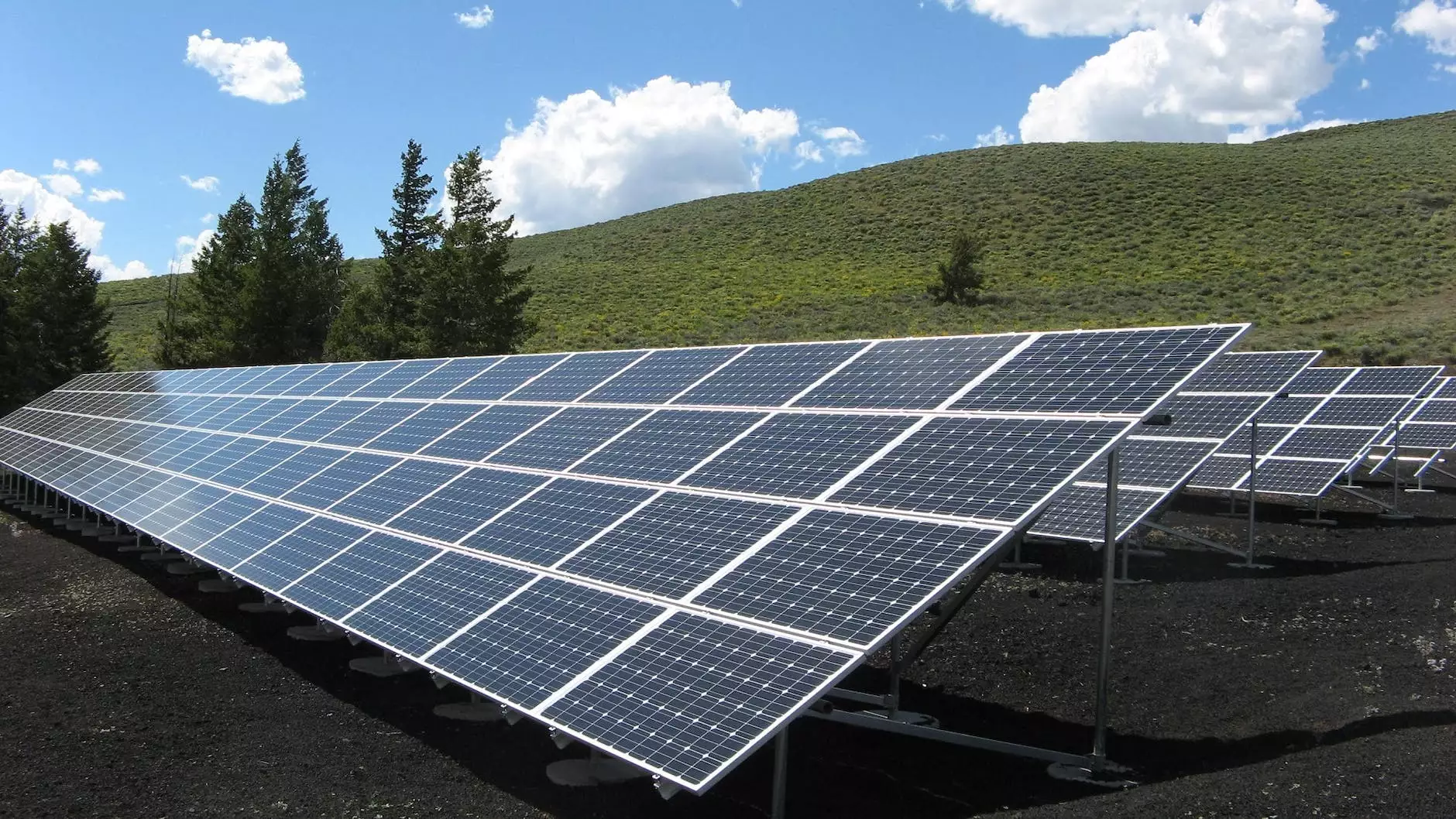Geothermal Energy in Africa: Unleashing Sustainable Power

In recent years, the global focus on renewable energy has intensified, and Africa stands at the forefront of this revolution. With its vast untapped potential, geothermal energy has emerged as a key player in the quest for sustainable power generation across the continent.
The Power of Geothermal Energy in Africa
Africa is bestowed with an abundance of geothermal resources, making it a prime region for harnessing clean and reliable energy. Geothermal energy, derived from the heat of the earth's core, offers a myriad of benefits that go beyond just electricity generation.
One of the significant advantages of geothermal power is its minimal environmental impact. Unlike fossil fuels, geothermal energy produces virtually no greenhouse gas emissions, contributing significantly to the fight against global warming and climate change mitigation.
Initiatives Driving Geothermal Development
Several African countries have recognized the immense potential of geothermal energy and have taken proactive measures to tap into this sustainable resource. Here are some noteworthy initiatives that are driving geothermal development:
1. Kenya's Pioneering Geothermal Projects
Kenya has been at the forefront of geothermal power generation in Africa. The country's Great Rift Valley hosts an array of geothermal fields, making it one of the continent's most promising areas for harnessing clean energy. The Olkaria Geothermal Complex, for instance, has played a pivotal role in reducing Kenya's reliance on fossil fuels and diversifying its energy mix.
Through extensive investment and collaboration with international partners, Kenya has successfully increased its geothermal capacity, enhancing energy access for both urban and rural populations. This progress has not only bolstered the country's energy security but has also attracted global attention, positioning Kenyan companies as leaders in geothermal development.
2. Ethiopia's Ambitious Geothermal Expansion
Ethiopia, known for its rich geothermal potential in the East African Rift System, has embarked on an ambitious plan to utilize this renewable resource. The country has made significant strides in geothermal exploration and is actively developing projects such as the Corbetti Geothermal Power Plant and the Aluto-Langano Geothermal Field.
By investing in geothermal infrastructure, Ethiopia aims to achieve its sustainable development goals, promote clean energy access, and support economic growth. The government's commitment to geothermal expansion has attracted both local and international investments, setting the stage for a greener and more sustainable future.
Benefits Beyond Renewable Power
Geothermal energy not only offers a sustainable and clean source of power but also presents a range of additional benefits:
1. Job Creation and Economic Growth
The development of geothermal projects stimulates economic growth and creates job opportunities. From exploration and drilling to plant operation and maintenance, the entire geothermal value chain provides employment to local communities, contributing to poverty alleviation and socioeconomic development.
2. Reliable and Baseload Power Generation
Unlike other renewable energy sources, geothermal power provides continuous and reliable baseload electricity. This stability is crucial for industrial development, attracting investment, and ensuring uninterrupted power supply for critical facilities such as hospitals, schools, and businesses.
3. Ancillary Benefits for Agriculture and Tourism
Geothermal energy projects often generate excess heat during power production. This heat can be harnessed for agricultural purposes, including greenhouse cultivation and fish farming, bolstering food security and income generation. Additionally, hot springs associated with geothermal resources can attract tourists, leading to further socioeconomic opportunities.
The Future of Geothermal Energy in Africa
As the appetite for renewable energy continues to grow, the future of geothermal power in Africa appears promising. However, several challenges still need to be addressed to fully unleash its potential:
1. Financing and Investment
Developing geothermal plants requires substantial upfront investments, making financial arrangements a critical aspect. Governments, international organizations, and private investors need to collaborate to ensure the availability of funding and create an enabling environment for geothermal development.
2. Technical Expertise and Capacity Building
A skilled workforce is vital to the successful implementation and operation of geothermal projects. Governments and industry stakeholders should prioritize training programs and capacity building initiatives to equip local communities with the necessary skills and knowledge.
3. Policy and Regulatory Frameworks
Clear and favorable policies play a crucial role in attracting investments and promoting geothermal development. Governments need to establish supportive regulatory frameworks that simplify procedures, ensure fair market conditions, and provide long-term stability for investors.
Conclusion
Africa's geothermal potential presents an invaluable opportunity to transition towards sustainable and climate-friendly power generation. With initiatives such as Kenya's pioneering projects and Ethiopia's ambitious expansion plans, the continent is poised to become a leader in geothermal energy.
Unlocking Africa's geothermal resources offers not only renewable electricity but a pathway to sustainable development, economic growth, and job creation. By harnessing the power of the earth, Africa can pave the way towards a greener future and combat the challenges posed by global warming and climate change.








